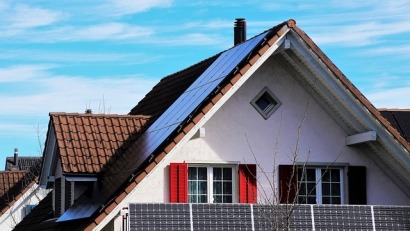
Generally, renovating an existing building is more eco-friendly than building a new one from scratch. Construction is more material-intensive and creates more waste than renovation. Extracting, packaging and transporting the materials adds to the project’s emissions. It also causes more air, water and noise pollution. A costly demolition might also be necessary.
Most renovations require far fewer materials and accrue less waste. You can also seamlessly integrate more sustainable features into an existing structure and reduce its energy expenditure. This feat is harder to pull off when building from scratch.
Although renovating is generally more sustainable than new construction, it depends on several key factors — material selection, the project’s scale and the homeowner’s lifestyle. One of these factors could significantly increase a renovation’s environmental impact or decrease a construction project’s footprint.
Using lots of natural and recycled materials can make a construction project more sustainable than a renovation. However, current economic conditions make it difficult to rely heavily on these materials. The costs of essential supplies like concrete, gypsum and aluminum saw double-digit increases in 2022 and remain highly volatile.
Due to these materials’ unstable prices, more contractors and homeowners are turning to unorthodox alternatives. Eco-friendly options like bamboo, straw bale, rammed earth and cross-laminated timber are becoming increasingly popular. This transition towards more sustainable building materials can make construction much more eco-friendly.
The scale of the renovation or construction project also comes into play. Extensive remodels like the addition of a pool, garage or extra bathroom could have a more significant environmental impact than building from scratch. These types of projects consume lots of water and electricity — not just during the renovation process, but throughout the rest of their life cycles.
Traditional construction methods might be less eco-friendly than the average renovation. Still, new strategies and design styles are emerging that could make building new structures much more sustainable. Modular building and 3D printing have the greatest potential to reduce the construction industry’s collective environmental footprint.
The homeowner’s lifestyle is arguably the most influential factor. How do you intend to use the renovation or new house? If you incorporate eco-friendly appliances and use the renovation’s new utilities responsibly, you can minimize its environmental impact and be 100% sure it’s more sustainable than building new.
On the other hand, if you don’t take care of your renovation and allow it to waste precious energy, it will have a larger negative impact in the long run. Similarly, building a new house can have more long-term environmental benefits than renovating if you commit to a green lifestyle. Small efforts like recycling, using natural cleaning products and investing in solar energy can make a huge difference.
The construction industry has been an enormous drain on the environment for decades. Industry professionals are still figuring out how to replace outdated building materials and strategies with greener alternatives. Although renovating is usually more eco-friendly than building from scratch, this fact could change soon. For now, green building remains a gray area. Consider all the factors carefully before making your decision.

